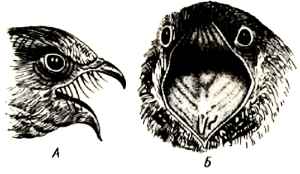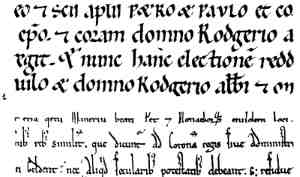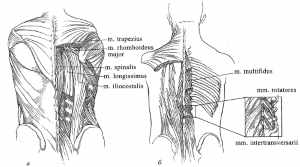Foreign Contacts in the Early New English Period
§ 316. The Tudors encouraged the development of trade inside and outside the country. The great geographical discoveries (beginning with the discovery of the New World in 1492) gave a new impetus to the progress of foreign trade: English traders set forth on daring journeys in search of gold and treasures. Under the later Tudors England became one of the biggest trade and sea powers.
The main events of the reign of Queen Elizabeth (1558-1603) were connected with the rise of merchant capital. Ousting her rivals from many markets England became involved inthe political struggle of the European countries for supremacy. Most complicated were her relations with France, Spain and Portugal; in 1588 England defeated the Spanish fleet, the Invincible Armada, thus dealing a final blow to Spain, her main rival in overseas trade and in colonial expansion. In the late 16th c. England founded her first colonies abroad.
The contacts of England with foreign nations, although not necessarily friendly, became closer, which had an inevitable influence on the growth of the vocabulary.
Expansion ofEnglish over the British Isles
§ 317. As Britain consolidated into a single powerful state, it extended its borders to include Wales, Scotland and part of Ireland.
As mentioned before, the partial subjugation of Wales was the last stage of the Norman Conquest. It was not until the 16th c., however, that the annexation was completed. Both during the wars and after the final occupation, the English language penetrated into Wales and partly replaced the native Celtic dialect; a large proportion of the aboriginal population, however, did not give up their mother tongue and continued to speak Welsh. (It is noteworthy that to this day Wales has preserved a large number of old Celtic place-names and the Welsh dialect.)
§ 318. The attempts to conquer Ireland in the 13th and 14th c. ended in failure. In Ireland, only the area around Dublin was ruled direct from England, the rest of the country being Irish or Anglo-Irish. Ireland remained divided among innumerable chiefs and turned into one of the poorest and most backward countries. Despite the weak ties with England and the assimilation of English and Welsh invaders by the Irish, linguistic penetration continued.
§ 319. The repeated claims of the English kings to be overlords of Scotland were met with protest and revolt. In the early 14th c. Scotland's independence was secured by the victories of Robert Bruce. Feudal Scotland remained a sovereign kingdom until the later Tudors, but the influence of the English language was greater than elsewhere.
Scotland began to fall under English linguistic influence from the 11th c., when England made her first attempts to conquer the territory. The mixed population of Scotland — the native Scots and Picts, the Britons (who had fled from the Germanic invasion), the Scandinavians (who had stayed on after the Scandinavian settlement), and the English (who had gradually moved to the north from the neighbouring regions was not homogeneous in language. The Scotch-Gaelic dialect of the Scots was driven to the Highlands, while in Lowland Scotland the Northern English dialect gave rise to a new dialect, Scottish, which had a chance to develop into an independent language, an offshoot of English. The Scottish tongue flourished as a literary language and produced a distinct literature as long as Scotland retained its sovereignty (see §307). After the unification with England under the Stuarts (1603). and the loss of what remained of Scotland's self-government, Scottish was once again reduced to dialectal status. In the subsequent centuries English became both the official and the literary language in Scotland.
Thus by the end of the Early NE period, the area of English had expanded, to embrace the whole of the British Isles with the exception of some mountainous parts of Wales and Scotland, the Isle of Man, Cornwall, and some parts of Ireland, — though even in most of these regions the people were becoming bilingual.
Дата добавления: 2016-05-31; просмотров: 3321;










